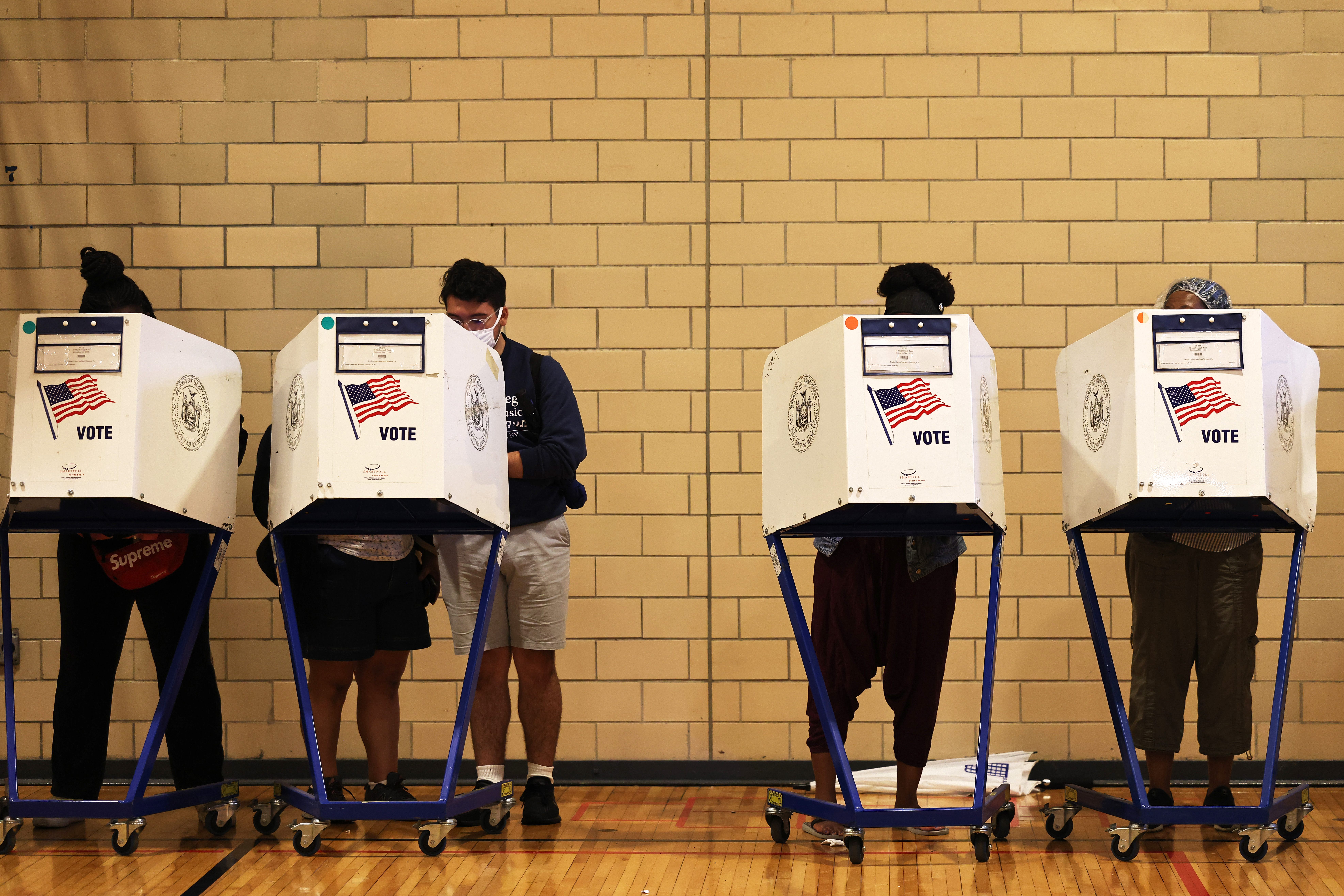Poll: More than half of AAPI voters have never been contacted by a political party
The findings were part of a broad new poll by APIA Vote, a nonpartisan organization dedicated to improving civic engagement.


A new poll from Asian and Pacific Islander American Vote gives more insight into voting behavior, party identification and key issues among registered Asian American voters — a diverse demographic that has seen heightened levels of political engagement and representation over the past several elections.
A majority of respondents said they planned to vote in the November general election, with 33 percent calling themselves “more enthusiastic” about voting in this cycle compared to previous ones. In terms of party identification, 44 percent of respondents said they were Democrats, while another 35 percent said they were independent, another party or didn’t think in terms of party affiliation. 19 percent said they identified as Republicans.
Including independent respondents, 56 percent leaned towards Democrats compared to 26 percent who leaned Republican.
Regardless of affiliation, most of the respondents said they had never been contacted by either party, including 52 percent who had never heard from the Democratic Party and 60 percent who said the same about the GOP.
Christine Chen, executive director of APIA Vote, said when the organization had launched a comprehensive field program with translated mailers, phone banking and door-knocking campaigns, many individuals said this was the first time someone had reached out to them about politics.
“[The parties] are leaving out people who are actually interested in voting, but they are not really getting the information and being engaged,” Chen said. “If we focus on that base of new voters and those who are in need of a little more language assistance as well, we can be able to motivate them to turn out in larger numbers.”
APIA Vote is a nonpartisan organization dedicated to increasing civic engagement, and has partnered with several other groups, including AAPI Data, to conduct and release a biannual Asian American voter survey since 2012.
The June 2022 survey consisted of 1,601 voters, split between Chinese, Filipino, Indian, Japanese, Korean and Vietnamese Americans, with an overall margin of error of plus or minus 2.5%. Data was also disaggregated based on gender, age, country of birth, region and party identification.
Issues like health care and the economy ranked as “extremely important” for Asian American voters, along with education, crime and gun control. Other topics like foreign policy in Asia and the growing wealth gap were not as high-priority.
Karthick Ramakrishnan, founder of AAPI Data, said Asian Americans have been left out of lobbying on other important matters like environmental justice or gun control, despite supporting policies like stricter gun laws.
“Asian Americans are not single issue voters — they’re not just civil rights voters, they’re not just immigration voters,” Ramakrishnan said.
And there are sharp political differences within the larger group of Asian American respondents, according to the survey. Breaking the data down by ethnicity and party identification, Indian American voters showed the deepest loyalty to the Democratic Party, with 70 percent, with Japanese Americans not far behind at 65 percent.
Another standout group was Vietnamese Americans, who were more likely to identify as Republicans and vote for a Republican candidate than the larger Asian American pool.
Up to 40 percent of Vietnamese respondents said they would vote for a Republican House or Senate candidate, compared to around 27 percent of all Asian American respondents. The group also had a much higher favorable rating of former President Donald Trump than other ethnicities, with 49 percent saying they had a “very favorable” or “somewhat favorable” opinion of Trump.
One explanation could be religious affiliation, Ramakrishnan said: The Vietnamese American community is more Catholic — and less progressive on issues like reproductive rights — compared to Chinese Americans, who are less religious overall.
In terms of gender, both parties have increased attention on Latino, Asian and Black men, who have supported Republican candidates in small but increasing margins over the past few cycles — though the majority still vote for Democrats. The APIA Vote survey showed up to a 9-point gap between men and women who would vote for a Republican candidate, though Ramakrishnan said that divide is smaller compared to other racial demographics.
Though the survey did not include a question about reproductive access, past surveys have shown that Asian Americans are some of the strongest supporters of abortion rights, said Janelle Wong, co-director of AAPI Data.
“Asian Americans are actually very distinctively progressive when it comes to supporting access to abortion,” Wong said. “Even the most conservative Asian American groups tend to be fairly progressive on this issue. So I don’t think this is an inroad for Republicans.”












